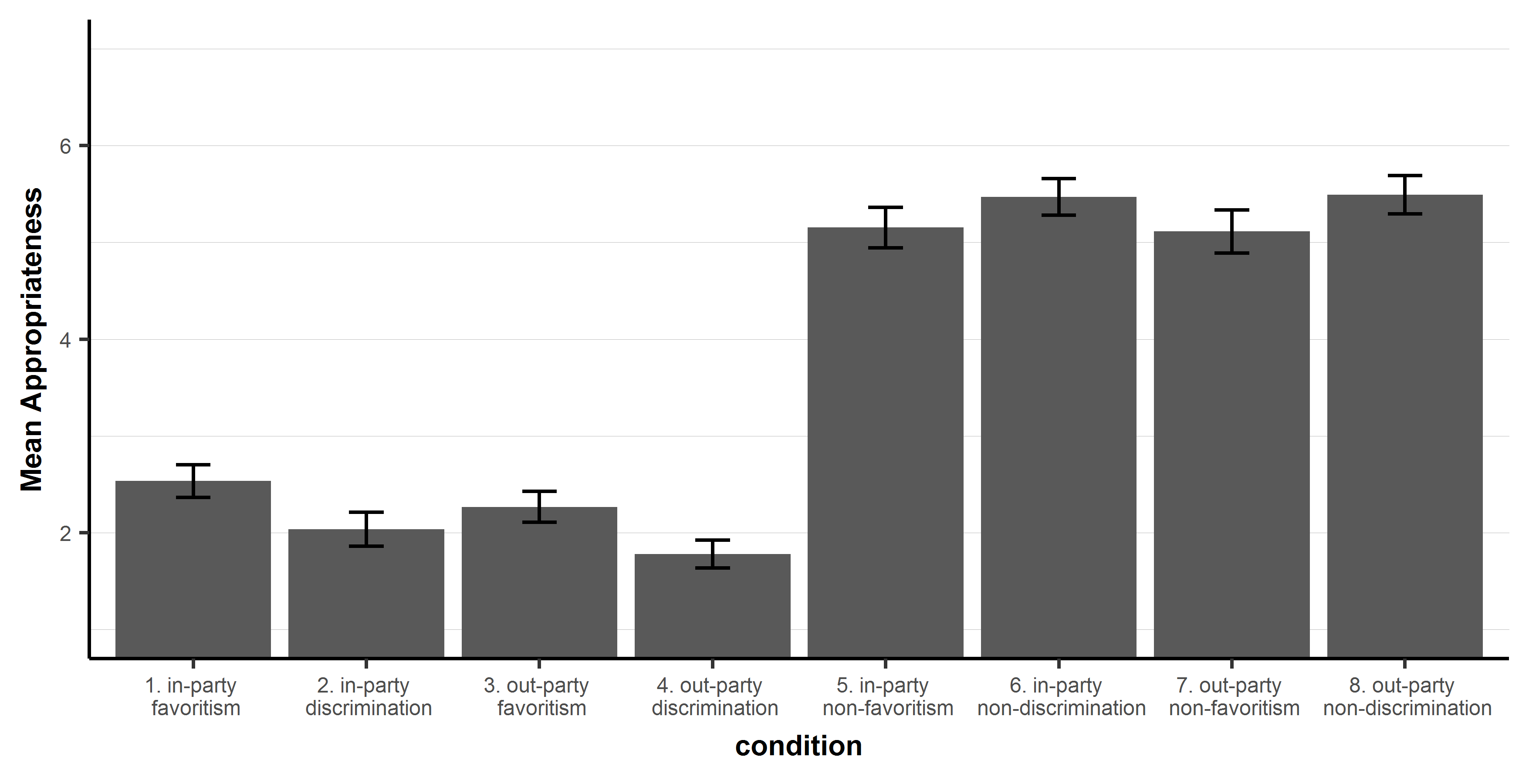Survey experiment & affective polarization
TITLE: Political Consequences of Partisan Prejudice
ABSTRACT: Political conflict sometimes spills over into unrelated areas of our lives. A growing literature documents examples of partisan considerations influencing judgments and behaviors in ostensibly nonpolitical contexts such as the workplace, academia, and dating, among others. To date, the focus has been on demonstrating these phenomena, with scant consideration of their downstream effects. When politics spills over into nonpolitical settings—that is, when political considerations influence nonpolitical judgments or behaviors—what are the consequences? I address this question with a novel theory and a nationally representative survey experiment. I find that norms exist regarding the spillover of political considerations into nonpolitical matters—and that spillover can have its own political consequences. When one’s copartisans discriminate against members of the other party, it can lead to decreased partisan identification and depolarization. Partisan discrimination in nonpolitical settings can—in some sense ironically—reduce affective polarization. That said, partisans also appear to hold a double standard: They expect copartisans to give an edge to fellow copartisans.
